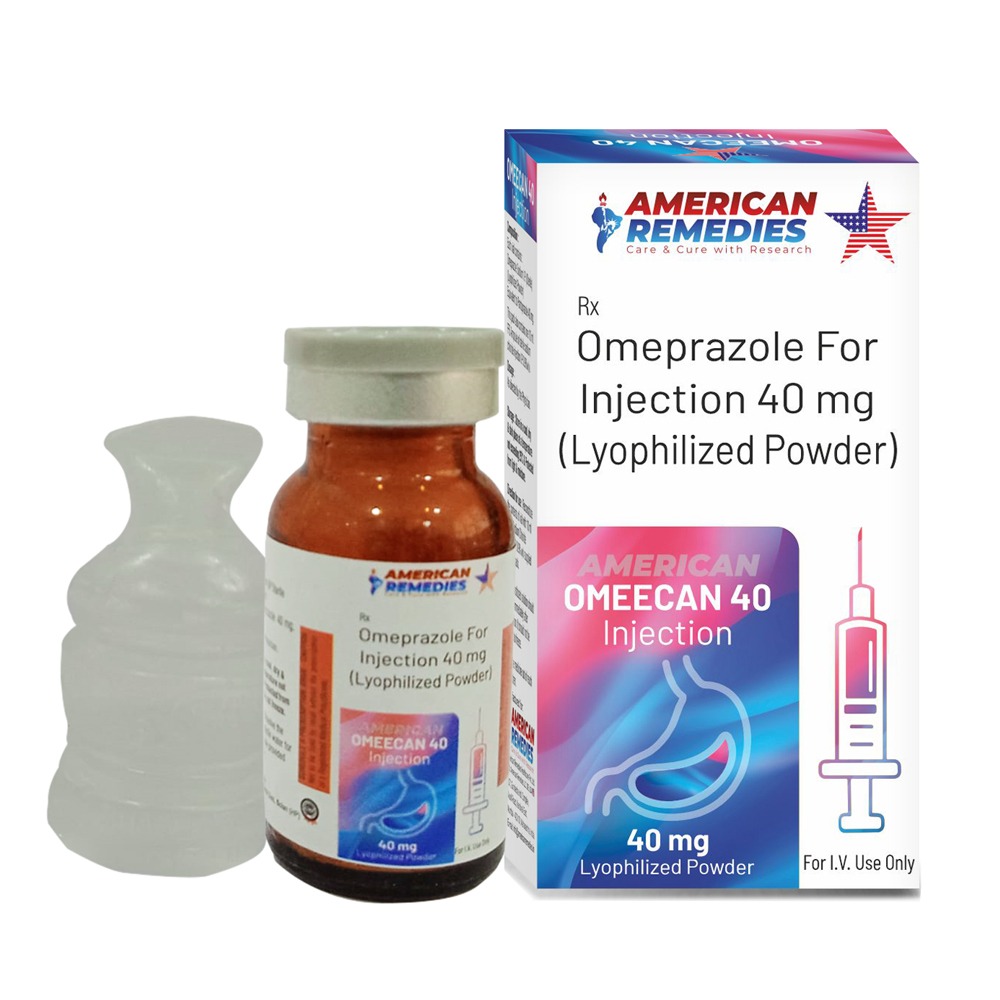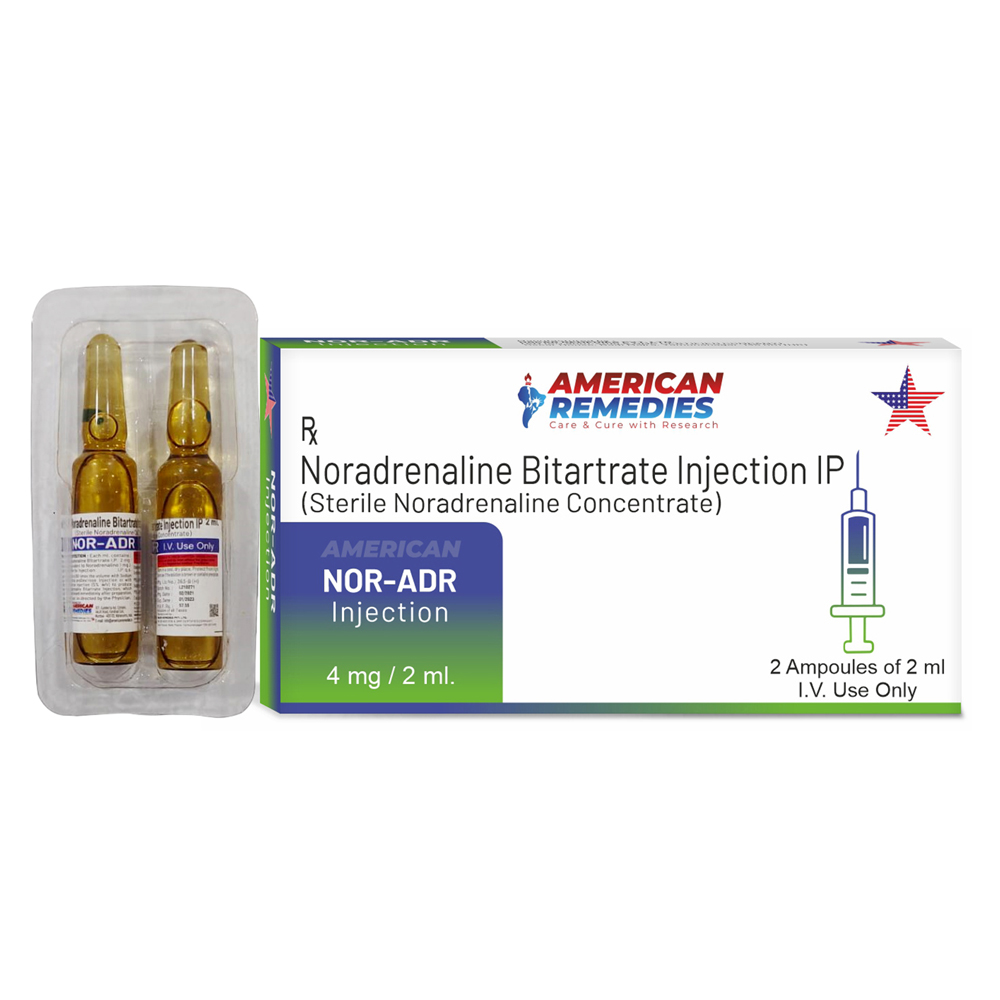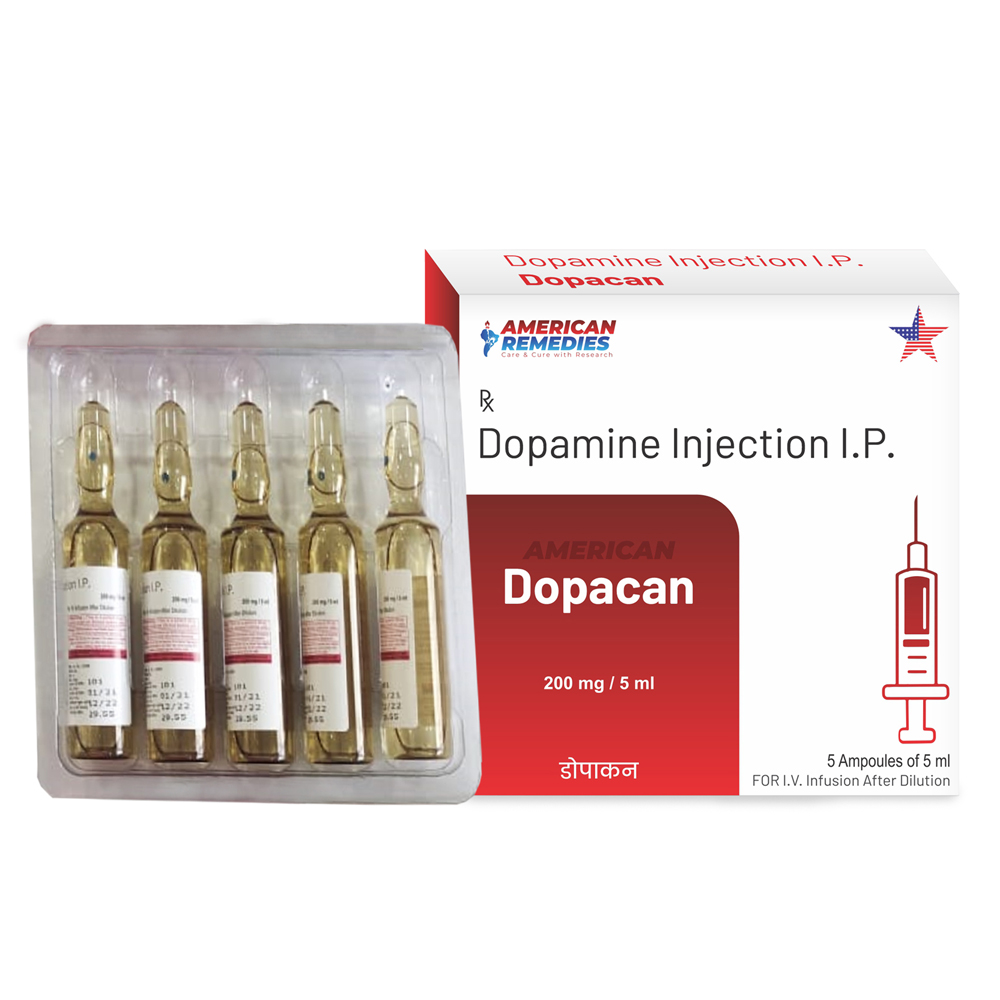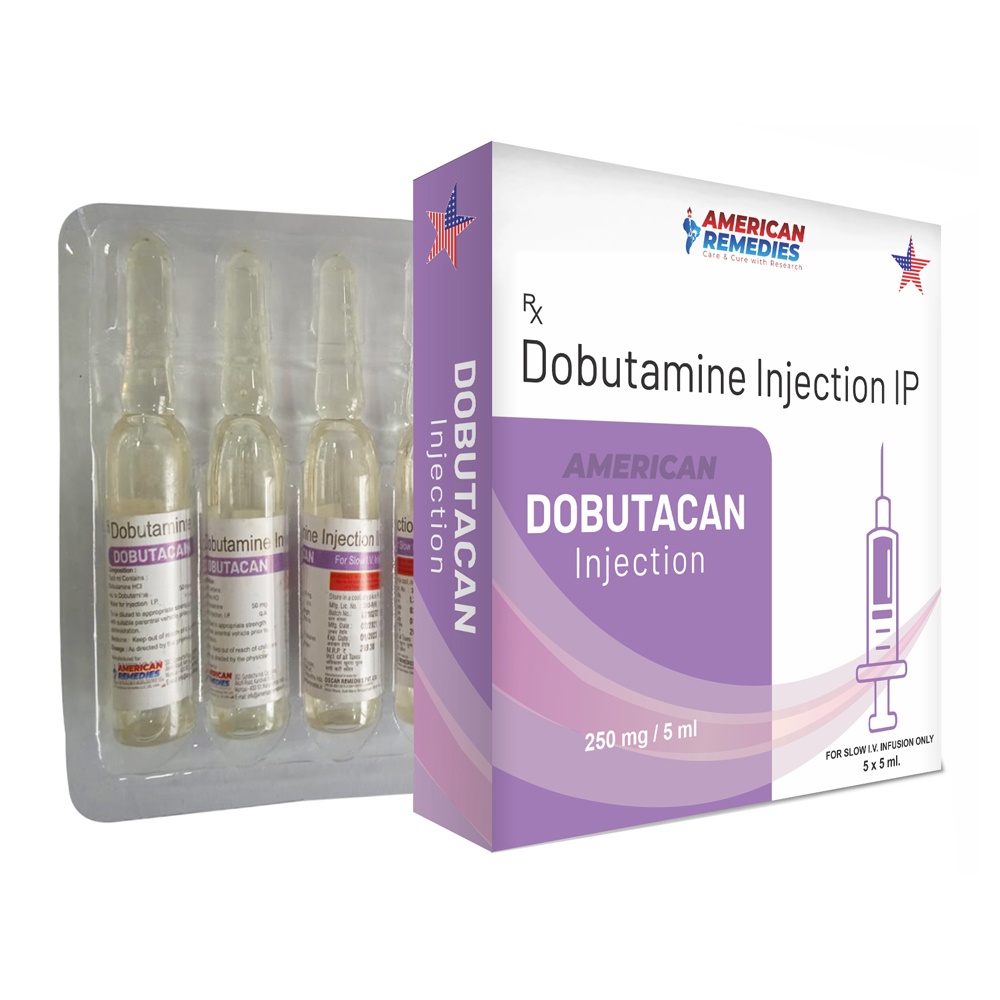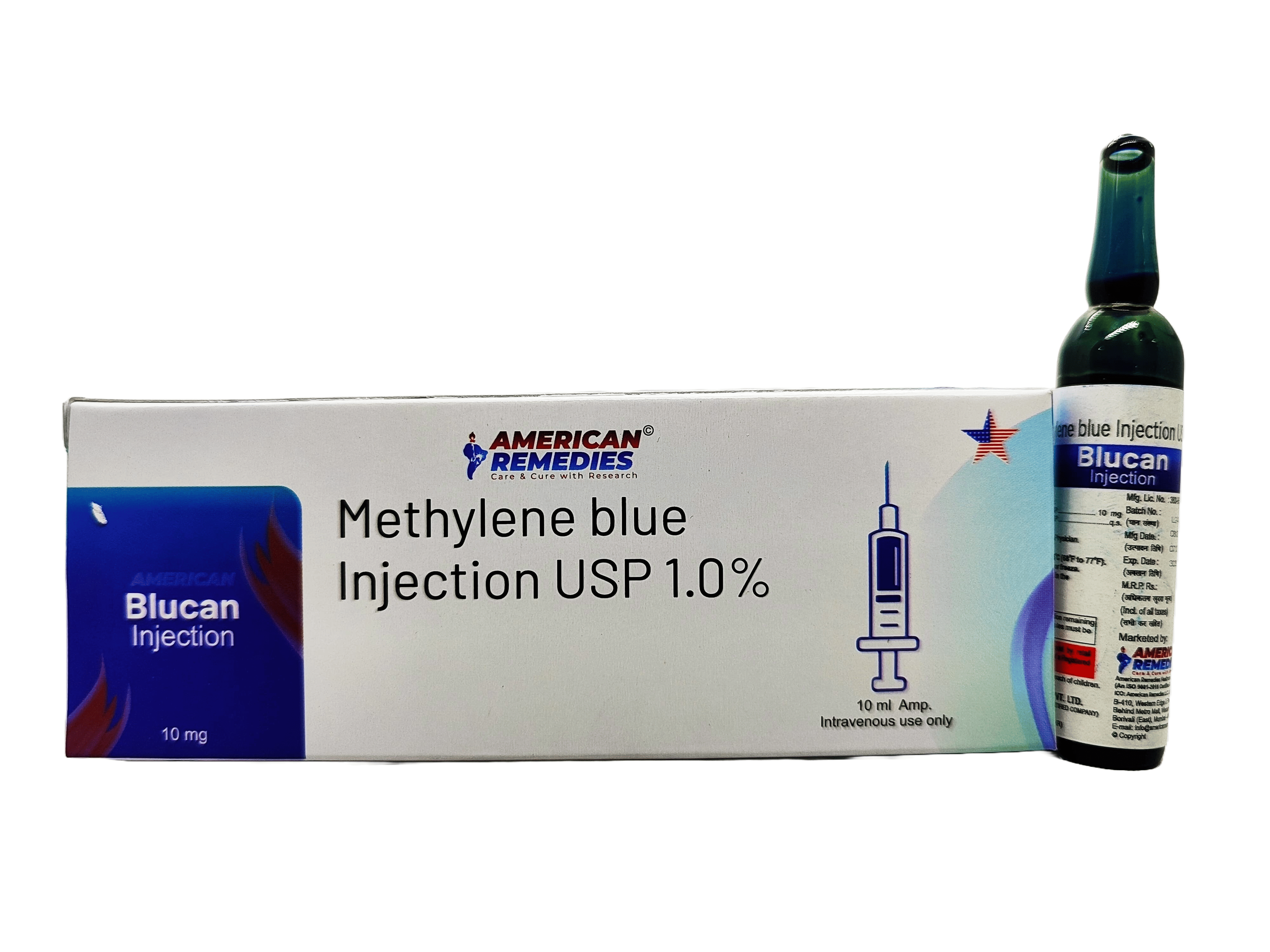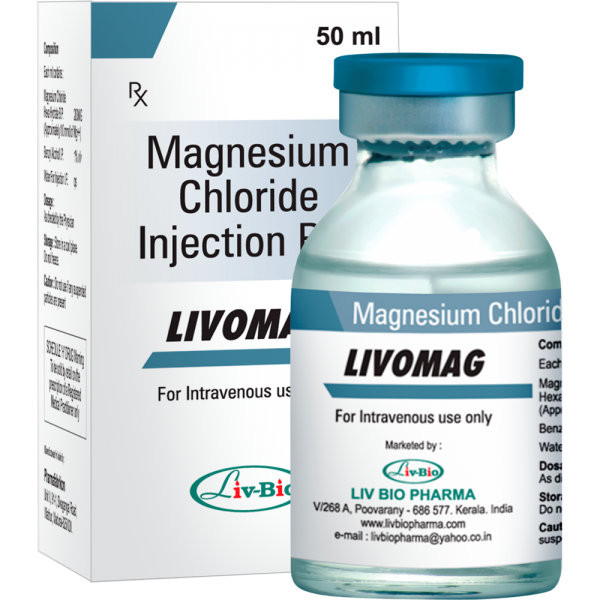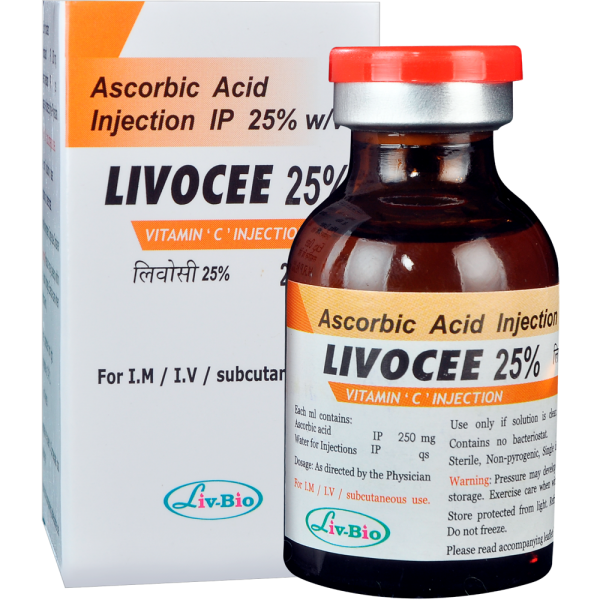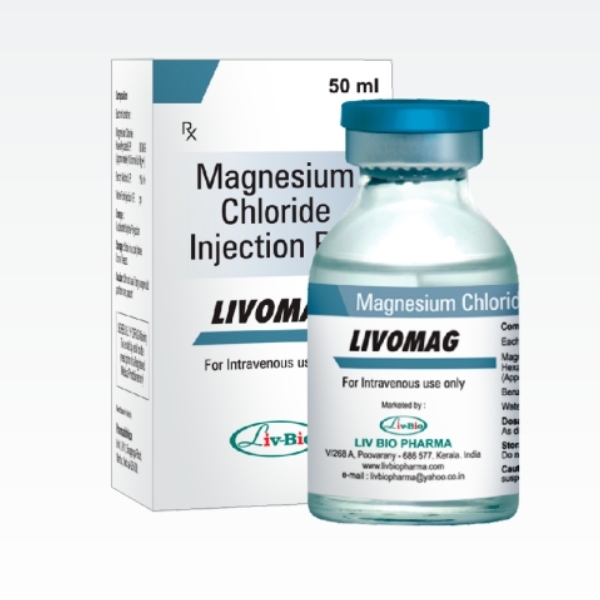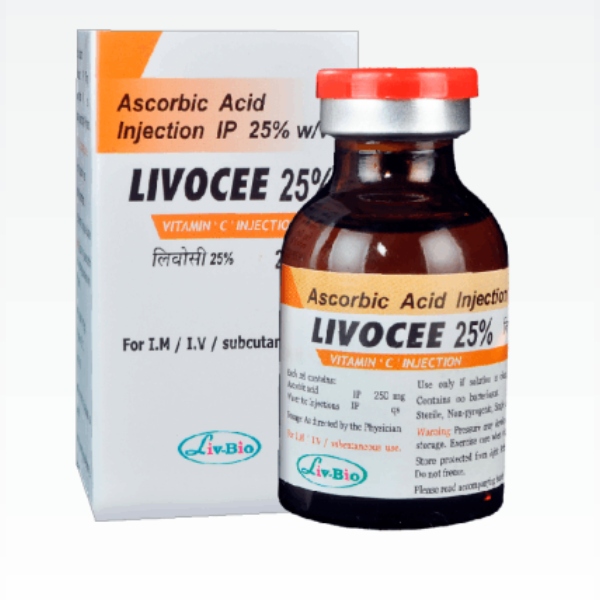Omeecan 40 is a brand of Omeprazole 40 mg Injection, manufactured by American Remedies. Omeprazole is a proton pump inhibitor (PPI) that reduces stomach acid production. The injection form is typically used in hospital settings when oral administration is not feasible. ________________________________________ ✅ Primary Uses Omeecan 40 Injection is indicated for: • Gastroesophageal Reflux Disease (GERD): To treat and manage acid reflux symptoms. • Peptic Ulcers: Including gastric and duodenal ulcers, to promote healing and alleviate symptoms. • Stress Ulcers: To prevent and treat ulcers in critically ill patients. • Zollinger-Ellison Syndrome: A condition characterized by excessive stomach acid production. • Helicobacter pylori Eradication: As part of combination therapy to eliminate H. pylori infection, which can cause ulcers. ________________________________________ ⚙️ Mechanism of Action Omeprazole works by irreversibly inhibiting the proton pump (H+/K+ ATPase enzyme) in the stomach lining, thereby reducing gastric acid secretion. This leads to increased gastric pH, promoting healing of acid-related conditions. ________________________________________ ⚠️ Precautions • Allergy: Do not use if allergic to omeprazole or other PPIs. • Drug Interactions: May interact with medications like clopidogrel, warfarin, and certain HIV medications. • Kidney and Liver Function: Use with caution in patients with impaired kidney or liver function. • Pregnancy and Breastfeeding: Consult a healthcare provider before use during pregnancy or breastfeeding. ________________________________________ 💊 Side Effects Common Side Effects: • Headache • Nausea
Send Message